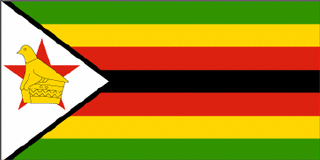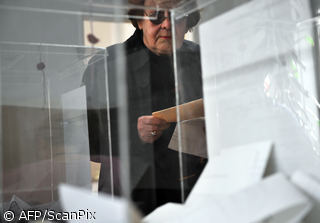Interview with an expert in Information Technologies Mudrik Dadashov
Published:
2 May 2001 y., Wednesday
It is frequently being spoken and frequently written about monopoly of “Lietuvos telekomas”. From time to time director of the company T. Paarma answers to different reproaches by “good works”; for instance, cuts the tariffs for international calls confirming that monopoly is useful. According to the plan of “Lietuvos telekomas” (LT) Internet services supply is the area that should be paid particular attention. For that purpose special Department “Takas” was established. LT has made a significant step by offering new service - 99 Lt. monthly payment for unlimited usage of Internet in off-peak hours (6 p.m. till 7 a.m.). Perhaps this is the first action of LT that has causes so many discussions and controversial opinions. We have asked Mudrik Dadashov, director of Internet services providing company “Euneta”, to comment upon this event.
- From consumers’ point of view this action can obviously be considered as positive because it reduces price for Internet services. But what concerns other companies, which are engaged in this business, considering development perspective, justice and legality this is a clear example of monopoly.
Price for Internet services consists of two parts: the first is for Internet product the company provides (information plus connection to Internet), the second is connection itself that lets presence in the network be possible. And this is the second part that has greater monetary value – because it is an ordinary telephone connection; consumer pays for every minute. And LT has got monopoly for this service. And efforts of companies which provide Internet services are of no significance as the only thing they can do is reduce their part of price.
- Seems that companies, which provide Internet services are obliged to work for LT, to search clients for them?
- Yes, it appears to be so and this is attractive about monopoly. Having applied tariffs LT gets absolutely rid of competitors because they have the following alternative only: either to loose the clients as it is impossible to compete under such conditions, or simply to become LT services agents and agree with any conditions. LT has already found such an agent – “Delfi”. As far as I know, “Delfi” gives 95% of its profit to LT. Now it is being negotiated with the other companies.
- Do you think they’ll consent to cooperate? Or all of them will resist?
- It is hard for me to tell. I’m afraid there will be no organized opposition. Because Internet is not a primary activity for majority of the companies; and they will not want to break relations or waste their time for struggling with LT. I must emphasize we’ve got a reason to bring an action against LT. While intruding into Internet LT infringes contract conditions according to which it has got monopoly for telephone connection only. LT treats the law at its own choosing while mechanically combining two absolutely different services – Internet and telephony, and treating them as a single service. According to the rules LT should have act in this way: define a tariff for telephone connection while using Internet; and this tariff should have been same for everyone. And depending on the number of clients the firm has got and on the amount of profit, the prices could have been reduced. Then conditions could have been same for everyone.
- What is the attitude of authorities?
- In the Seimas and in Competition Council we find understanding and sympathy. This problem is already being discussed. Unfortunately, the Government does not participate in these discussions and it seems that Communication and Informatics Department is a subsidiary of Telekomas. When you come to them they behave as they keep mum.
- Are there any ways out?
- There is one strategic solution – competition. In the future this is mobile communication development, when with the arrival of the third operator significant fall in prices is expected. As soon as the prices become the same or become less than for the ordinary telephone connection, then Telekomas will have no place to hide.
- But until then LT will loose its rights, will it?
- I don’t think so. According to my observations, creating various structures inside and outside, LT gets its teeth into Lithuania so that later it’ll be impossible to root it out. There is a threat that during the period of time left LT will seize the market so that even during the absence of formal monopoly it will have monopoly. Certainly if the government doesn’t promote efficient competition. It’s pity, my forecast in the year 1997 has proved out.
Copying, publishing, announcing any information from the News.lt portal without written permission of News.lt editorial office is prohibited.
The most popular articles
 For the last 15 years European citizens living in another European country have been able to vote in that country's local and European elections.
more »
For the last 15 years European citizens living in another European country have been able to vote in that country's local and European elections.
more »
 Zimbabwe is suffering from cholera.
more »
Zimbabwe is suffering from cholera.
more »
 Metropolitan Kirill will head the Russian Orthodox Church temporarily following the death of Patriarch Alexiy II on Friday.
more »
Metropolitan Kirill will head the Russian Orthodox Church temporarily following the death of Patriarch Alexiy II on Friday.
more »
 U.S President George W. Bush celebrates his final Christmas in office - the lighting of the National Christmas tree.
more »
U.S President George W. Bush celebrates his final Christmas in office - the lighting of the National Christmas tree.
more »
 Under new draft laws, people travelling by bus and ship would enjoy the same rights as those taking a plane or train, including the right to meals, hotel accommodation and alternative services if the trip is cancelled or interrupted.
more »
Under new draft laws, people travelling by bus and ship would enjoy the same rights as those taking a plane or train, including the right to meals, hotel accommodation and alternative services if the trip is cancelled or interrupted.
more »
 The importance of individual happiness, which can be achieved with the help of universal human values - whether religious or non-religious - was one major theme in an address by the 14th Dalai Lama to the European Parliament on Wednesday.
more »
The importance of individual happiness, which can be achieved with the help of universal human values - whether religious or non-religious - was one major theme in an address by the 14th Dalai Lama to the European Parliament on Wednesday.
more »
 Although the European Parliament is now much more powerful than when it was first directly elected in 1979, voter turnout for elections has declined steadily, reaching a new low in 2004.
more »
Although the European Parliament is now much more powerful than when it was first directly elected in 1979, voter turnout for elections has declined steadily, reaching a new low in 2004.
more »
 The free tours are run by Sandemans New Europe - set up in 2004 by Chris Sandeman, who chose tourism over his family's traditional sherry business.
more »
The free tours are run by Sandemans New Europe - set up in 2004 by Chris Sandeman, who chose tourism over his family's traditional sherry business.
more »
 Eighteen months after it began work, Parliament's Temporary Committee on Climate Change called for an 80% cut in greenhouse gases by 2050, binding interim targets to improve energy efficiency 20% by 2020 and incentives to encourage everyone to do their bit.
more »
Eighteen months after it began work, Parliament's Temporary Committee on Climate Change called for an 80% cut in greenhouse gases by 2050, binding interim targets to improve energy efficiency 20% by 2020 and incentives to encourage everyone to do their bit.
more »
 Israeli experts are using good old mathematical models to give a face in a photo the ideal characteristics in just a few mouse clicks.
more »
Israeli experts are using good old mathematical models to give a face in a photo the ideal characteristics in just a few mouse clicks.
more »